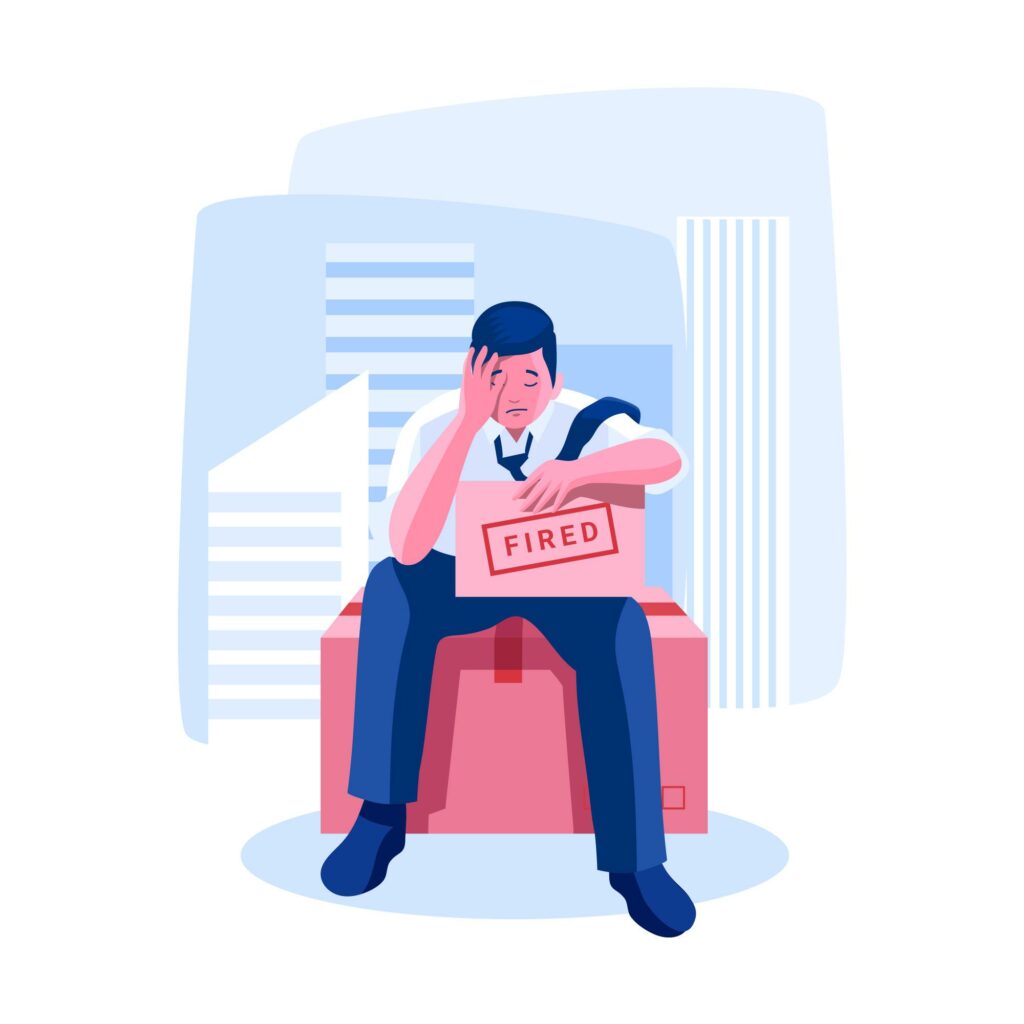Termination Without Cause vs. Wrongful Dismissal – What is Best for You in the Aftermath
Dismissal is a serious matter. It’s never something to be taken lightly. This means your employer cannot decide on “a whim,” but they aren’t under any obligation to tell you why they are terminating your employment. Similarly, it would be best if you didn’t run off to file a claim without consulting a legal representative. So, what’s the difference between termination without cause vs. wrongful dismissal according to Alberta employment law?
In the legal world, it is said that you can sue anyone for anything. However, as Chapman Riebeek employment lawyers, we must disagree. People file lawsuits without knowing their rights or if they have a case to build.
This post aims to help you understand the differences between the two types of dismissal. You will be able to identify violations and negotiate for potential damages before filing a claim with the Ministry of Labour. In this post, we will give you an overview of the following:
- What is termination without the cause
- What constitutes a wrongful dismissal
- Termination without cause vs. wrongful dismissal
- The main differences between the two cases
- Finally, what are your rights, and what are you entitled to after it is all said and done?
If you’re like most people, being fired can be a confusing and emotionally sensitive experience. But burning bridges is not the solution. Instead, keep it professional even if the other party does not.
Choosing the right employment lawyer in your area is critical to avoid the intense stress that a dismissal can cause. During such a trying time, their advice and support can be invaluable. But first, let’s examine the differences and how you can decide what’s best for you.
The Key Differences – Termination Without Cause Vs. Wrongful Dismissal in Alberta?
You may want to understand your legal rights when your job is at stake. However, there are five different types of dismissals that you should know about before we discuss our subject.
Five Types of Dismissal:
- Termination without cause (When a company decides that the employee’s services are no longer required, the employee is terminated without cause.)
- Wrongful dismissal (Refers to any unlawful termination of employment.)
- Unfair dismissal (Occurs when an employee is dismissed harshly or unjustly.)
- Constructive dismissal (When an employer modifies the terms and conditions of work, forcing an employee to quit against their will.)
- Voluntary redundancy (Employee acknowledges an offer from their employer to be relieved of their duties.)
Hopefully, this is an excellent introduction to the topic of termination without cause vs. wrongful dismissal in Alberta for those unsure about your restrictions. These are different reasons for release, and it happens daily in Canada.
Although nothing can prepare you for such things, the first thing you have to do is check your employment agreement. Of course, nothing is out of the ordinary if the employer has fulfilled his part of the contract. However, some indications take time to spot at first glance.
How Do You Explain Termination Without Cause in Alberta?
Many workers need to be more informed about what their rights are. For example, even the term termination without cause is often misinterpreted as employers’ bad intentions toward employees.
However, the term’s true meaning is defining the moment that a company lets go of the employee. It is not necessary for employee misconduct but for any reason, including restructuring, cost cutting, realignment, or poor work performance. Whichever the case, an employee is usually entitled to a notice period or pay in lieu for working during that time.
In Alberta, it is legal for an employer to fire an employee without any cause as long as it is not discriminatory. However, if the employer does not respect your rights or the unfair severance offer, you might be facing wrongful termination.
Employment Contract and Severance Pay
You should contact an employment lawyer and ensure that your rights are enforced and you get a fair severance pay. Why? Taking your case to the Ministry of Labour will give you the minimum required amount for your employer to respect by common law. However, your severance depends on many factors:
- Age
- Length of employment
- Position
- Salary
- Benefits
You can use a severance calculator to estimate whether or not the offer is fair. So, in essence, there is no one-size-fits-all because the real reason behind the severance is that the companies are trying to save money, including on people they just terminated.
Its employer must give you reasonable notice, as a working notice, pay instead of working notice, or the combination of the previous two. Working notice means how long you will be working for the employer until a set dismissal date.
The important thing here is not to make rash decisions. If you are handed the termination papers, you have no legal obligation to sign them there and then. You could take the documents and consult an employment lawyer unless you signed an employment agreement that limits your entitlements upon termination of the contract.
What Qualifies as Wrongful Dismissal in Alberta?
Wrongful termination is different. It includes cases where an employer fails or denies good cause for dismissal, notice, or payment in lieu of notice. In other words, your release violates the terms of your employment contract or any provision of Alberta Employment Law.
However, what is commonly disputed in wrongful dismissal is:
- Being released based on race, religion, nationality, age, gender, or sexual orientation
- Dismissed for taking part in company investigation due to discrimination claim
- Released without notice period or compensation
What Should You Do if You Were Wrongfully Dismissed in Alberta?
Either way, if you are wrongfully terminated, then you should not sign any severance package. Why? Because it would mean you are renouncing your right to file a claim for wrongful termination. Instead, remember everything verbally said before, during, and after the termination meeting. Gather any feedback or performance reviews and your contract. All this documentation can serve as evidence.
Getting the Right Advice
If your boss fired you and you think it’s wrongful dismissal, consult immediately with an employment law expert such as Tyler Nightingale to review your documents and help you consider your next steps.
Tyler J. Nightingale is a certified specialist in many areas, including employment law. He can represent you to help prove that it’s wrongful termination and help you win compensation.
Tyler’s team at Chapman Riebeek can guide you through quick steps and assist you in applying for compensation after being wrongfully dismissed. In addition, he can help you understand your rights and protect your interests.
Chapman Riebeek is offering consultation at an office in Red Deer, Alberta. Frequently, when filing a claim for wrongful dismissal, an employment lawyer can resolve it in months. Additionally, your chosen lawyer will negotiate with your employer for a fair settlement.
Termination Without Cause Vs. Wrongful Dismissal
There are many similarities between termination without cause vs. wrongful dismissal. They both have the same result: the employee losing their job. However, they differ regarding what led to the termination and how the company representatives communicated it to the employee.
The main difference is that in a case without cause, an employer can fire an employee at any time for any reason. However, in a wrongful case, there must be some dismissal or termination done wrongfully by the employer.
In addition to this difference, in termination without cause, an employer does not need to give any reason for terminating an employee’s employment. In contrast, for a wrongful termination case, an individual must prove that their employer’s actions were illegal or unfair before they can take action against them.
In both scenarios, the employee can receive compensation from their employer for any wages lost. However, the amount of money will vary depending on dismissal and how long they worked for the company.
Call us now for a consultation.
As the saying goes, an ounce of prevention is worth a pound of cure. Don’t wait for stress to build up before having your situation assessed by a lawyer specialized in employment law. Call today to have an initial consultation.
For more information, please visit (https://www.chapmanriebeek.com/red-deer/employment-lawyer/) or call 403-346-6603.


